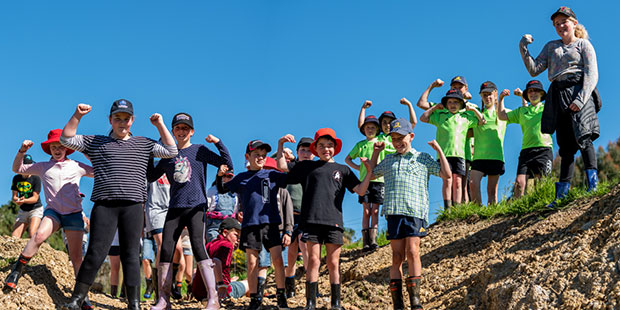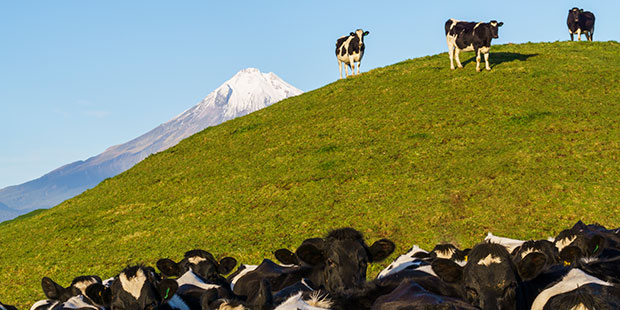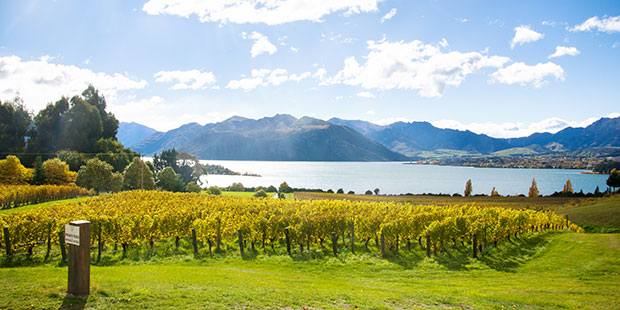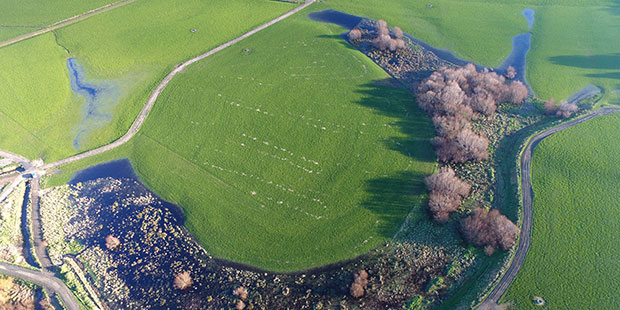When a farm becomes a school
Prize-winning dairy farm doubles as environmental "classroom".


Schoolkids in New Zealand’s deep south may soon be attending lessons in a different kind of classroom - on a dairy farm.
Farmer Chris Giles and his wife Desiree are looking at establishing a “learning hub” on their 206ha property near Gore in Southland as a place to teach young Kiwis about sustainable farming.

Photo / Supplied.
Photo / Supplied.
The couple, who milk 550 cows at Waimumu Downs, are part of the Southland Enviroschools programme. Every term they host hundreds of students from schools in the district who spend a day at the farm involved in a myriad of activities such as testing water quality, native seed sourcing and learning about what to plant and where.
‘Classroom’ sessions focusing on the farm and steps being taken to reduce the impact it has on the environment and the nearby Mataura River are also a key part of the visits – which is where the idea of a learning hub came in.
“At the moment we use marquees and gazebos when the kids are here,” Giles says, “but we need something a bit more permanent. Originally we had plans to relocate an old school building but that (idea) is up in the air now and might not happen.”

Photo / Supplied.
Photo / Supplied.
Instead Giles is looking at installing a new building, one that could act as a real classroom. Although no final decisions have been made, it is one of many innovative steps the couple has taken to establish sustainable farming practices since they took over the farm in 2014.
Originally a sheep farm, the couple converted to dairy the same year, formed an equity partnership with seven other shareholders, leased out a further 100ha and set about forging a community environmental project which has so far seen the establishment of an on-farm plant nursery, riparian planting, waterway fencing, the development of wetlands and construction of sediment traps.
Their efforts were recognised earlier this year when they received a DairyNZ Sustainability and Stewardship Award as part of the 2020 Ballance Farm Environment Awards.
Giles says their involvement in the Enviroschools programme has come about because “we like to be involved with the community and to help with education. It (Enviroschools) is one way of doing that”.

Photo / Supplied.
Photo / Supplied.
His background suits him well for the role. Raised on a dairy farm at Ruawai near Dargaville, Giles has, in his words, “farmed my way south” working on dairy farms in places as widespread as Te Kauwhata, Dannevirke and Palmerston North before ending up at Waimumu Downs.
He can even lay claim to a teaching background of sorts. In 2001, after leaving school, he spent a year travelling during which he coached sports at a private school in Surrey, England (he also worked on a dairy farm while there).
Desiree is bringing her past experiences to bear too having worked in a number of roles previously including time as a rural vet technician and as a consulting officer for DairyNZ.

Photo / Supplied.
Photo / Supplied.
Giles says around 370 students from 24 Southland schools spend a day at the farm every term during which they learn about biodiversity and carry out various activities including farm stream studies, tests for water quality, seed sourcing and pest control. They also gather flax and propagate seeds in glass houses on the farm.
The students are among others in the local catchment community and iwi who are working with the Giles to establish the plant nursery from locally sourced seedlings.
The Giles have also developed four wetlands for farm drains to flow into and, over the last 12 months, have begun riparian planting around some of these waterways. Among the species planted are beech trees, cabbage trees and varieties of carex.

Photo / Supplied.
Photo / Supplied.
They are trialling the use of straw bales and Douglas Fir woodchips to filter sediment and nutrients, with tests showing this has resulted in an average reduction of up to half of total nutrients leaving the wetlands.
Long term, the couple is working to involve other farmers in the area to help develop a native plant corridor from the Mataura River to the Hokonui Hills, a distance of about 22km.
“We are only at the beginning of our journey,” Giles says. “Our plantings and nursery are still quite small, but the work we are doing with the schools and the community is awesome; we are learning a lot from them too.”
Waimumu Downs is located close to the Charlton Stream, a tributary of the 190km-long Mataura River. The Mataura is renowned as a source of brown trout and every year draws large numbers of local and international visitors.





